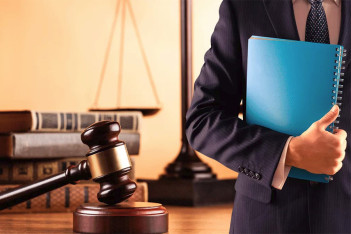Gathering evidence of the client's innocence
When a person is unreasonably suspected of committing an offense or a criminal offense, the key role in his defense is played by the presence of proper and admissible evidence of innocence. In criminal proceedings, the principle of presumption of innocence applies, however, in practice, law enforcement agencies often formulate charges based only on their own assumptions or dubious testimony. In such situations, professional collection of evidence in favor of the client becomes critically important. It is the lawyer who is able to objectively assess the situation and organize a legally significant evidence base that will refute the accusation.
Legal stages of collecting evidence of a person's innocence
The process of collecting evidence of innocence is a complex legal activity that requires a systematic approach, which includes the following steps:
- Primary analysis of the circumstances of the case: The defense begins with an in-depth study of the plot of the case: the lawyer analyzes the circumstances of the detention, reasons for suspicion, witness statements, results of examinations and other available materials. This allows you to determine which allegations of the prosecution need to be refuted, as well as to identify weaknesses in the already collected evidence base of the investigation.
- Identifying potential sources of evidence in favor of the client: The specialist identifies who or what can confirm the client's innocence. These may be witnesses to the event, recordings from surveillance cameras, data from phones or GPS, documents confirming the alibi. At this stage, it is determined which of the evidence is available, which requires official requests or technical restoration.
- Working with experts and specialists: The lawyer can initiate an independent examination or involve a specialist to analyze technical data (video recordings, DNA samples, financial transactions, etc.). A professional opinion can be crucial in refuting the prosecution's version.
- Collecting alternative information to establish an alibi: In cases where the client has an alibi, the specialist collects confirmation - tickets, checks, videos, testimonies of third parties. It is important not only to find evidence, but also to prove its relevance and admissibility in court.
- Preparation of evidence in a procedurally admissible form: The collected materials must be properly prepared: some testimonies - in the form of written statements, videos - through a request from official sources, documents - with certification. The specialist prepares this evidence in accordance with procedural requirements so that the court finds it admissible.
- Submission of evidence to the pre-trial investigation bodies and/or court: The lawyer submits evidence for consideration by the investigation or court together with the relevant motions. He defends its significance and proves that it refutes the suspicion or accusation.
The main purpose of this process is to ensure a fair trial and protect the rights of the accused.
Conditions for providing legal assistance when collecting evidence of a person's innocence
To ensure the full and effective provision of legal assistance, it is important to adhere to certain conditions:
- Maximum openness of the client: Providing the lawyer with complete and honest information is a key condition. Concealing facts complicates the defense and may prevent the formation of the right strategy.
- Access to criminal case materials: To analyze the validity of the suspicion and build a defense, the lawyer must familiarize himself with all the evidence available to the investigation. The client or his relatives must provide existing copies or provide access to documents through the investigator.
- Operational interaction and communication: During the investigation, events develop quickly. It is important that the client is in touch and can quickly provide additional information or appear on calls.
- Conclusion of a written contract: Legal assistance is provided on the basis of a formal contract that provides for the scope of services, terms, cost, confidentiality rules and mutual obligations.
Mutual responsibility and openness between the client and the lawyer are the key to successful evidence collection and effective legal protection.
Advantages of contacting a lawyer when collecting evidence of innocence

Deep knowledge of procedural law: The specialist knows what evidence may be important to the court, and what will be considered inadmissible.

Involvement of specialists and experts: The lawyer has contacts with independent experts who can confirm or refute technical details that are important to the case.

Formation of a defensive position: The specialist not only collects evidence, but also forms a line of defense that logically justifies the client's innocence in the eyes of the court.
Common questions about collecting evidence of innocence
Question
When is a person considered innocent of committing a crime?
Answer
A person is considered innocent of committing a crime until his guilt is proven in a lawful manner and confirmed by a final court verdict of conviction. This is the principle of the presumption of innocence.
Question
Is a lawyer needed when collecting evidence of innocence in a criminal case?
Answer
Yes, a lawyer is needed. He knows what evidence is admissible, how to properly collect, formalize and submit it. A lawyer can make legal requests, involve witnesses, initiate examinations and appeal the refusal to collect important evidence.
Question
Is it possible to collect evidence of innocence yourself in criminal proceedings?
Answer
Yes, you can collect evidence yourself, for example: documents, videos, witness statements. However, without experience, it is easy to make mistakes - such evidence may not be accepted or taken into account. Therefore, it is better to involve a lawyer for proper formalization and submission.
What does the cost of legal assistance during the collection of evidence of innocence depend on?
The price of legal support during the collection of evidence of innocence depends on the complexity of the case, the number of procedural actions, the volume of analytical work, the need for additional requests, examinations, technical work (for example, restoring video recordings). Urgency also matters: the faster you need to collect and submit evidence, the higher the cost. The final amount is agreed upon individually after analyzing the materials.
ConclusionCollecting evidence of innocence is not just help, it is the protection of your freedom, honor and dignity. The law enforcement system is not always objective, and without proper evidence, even an innocent person can be found guilty. That is why it is so important to involve a professional lawyer in a timely manner who will be able to identify the necessary facts, properly document them and report them to the investigation or court. Do not delay - the sooner the work on collecting evidence begins, the higher the chances of a successful resolution of the case.




































